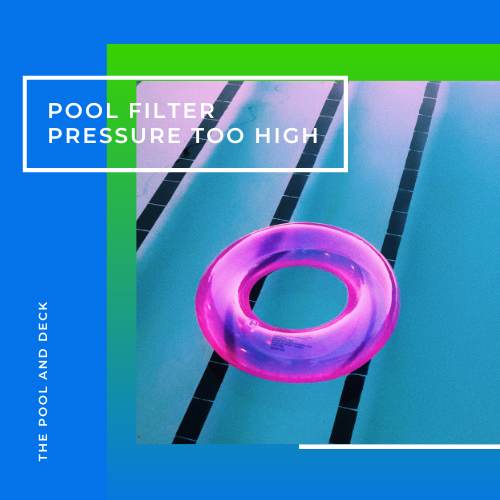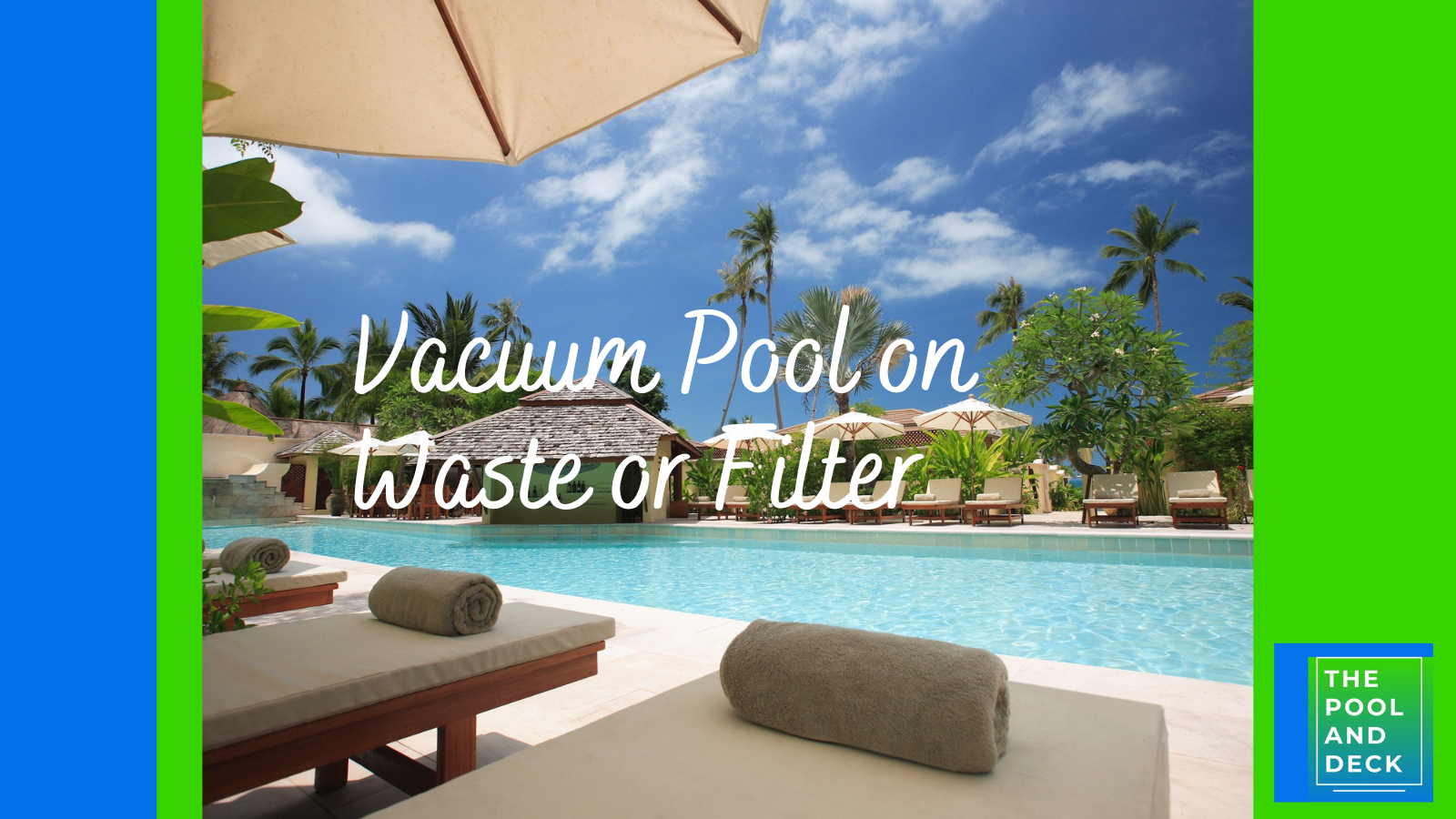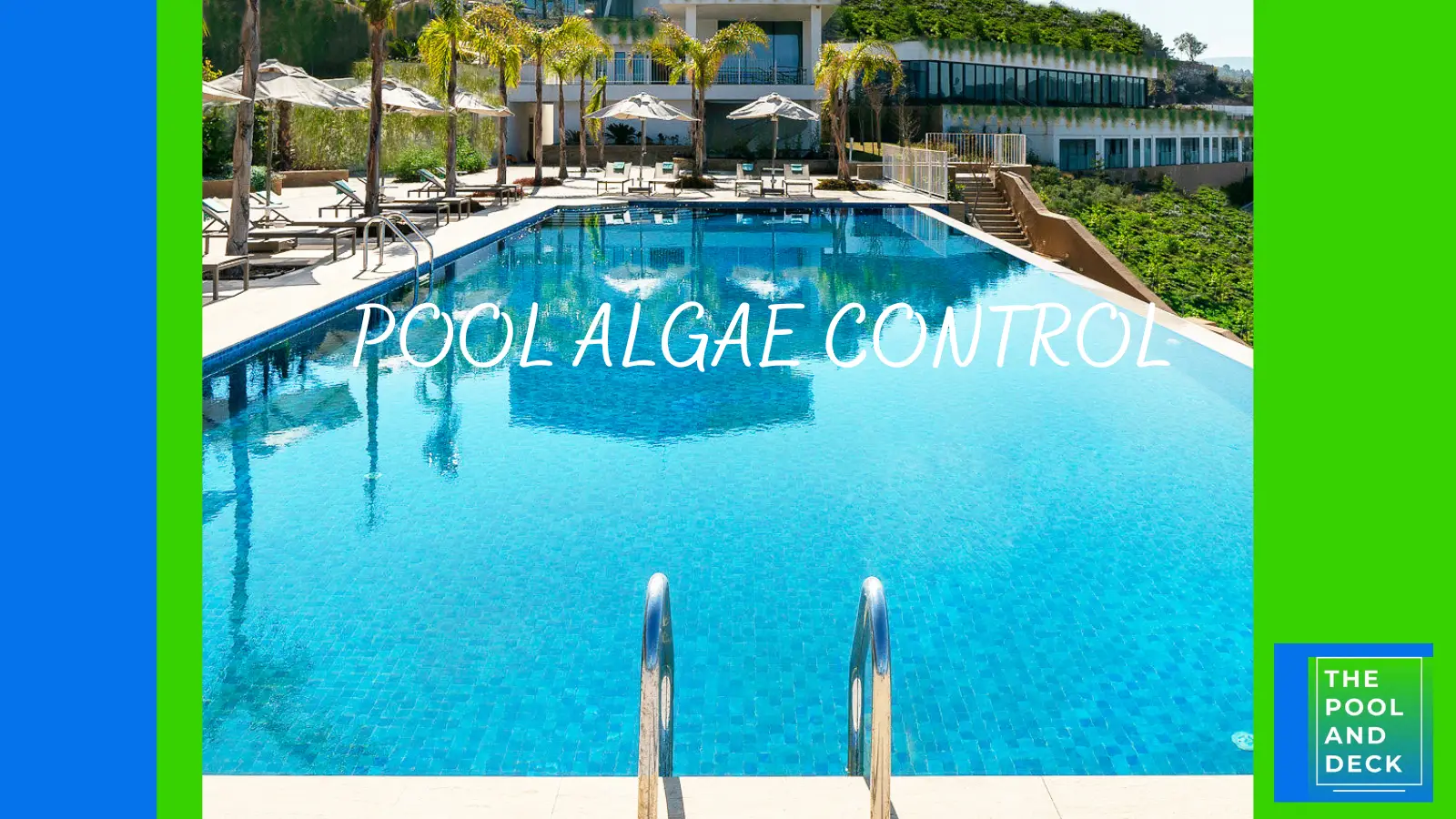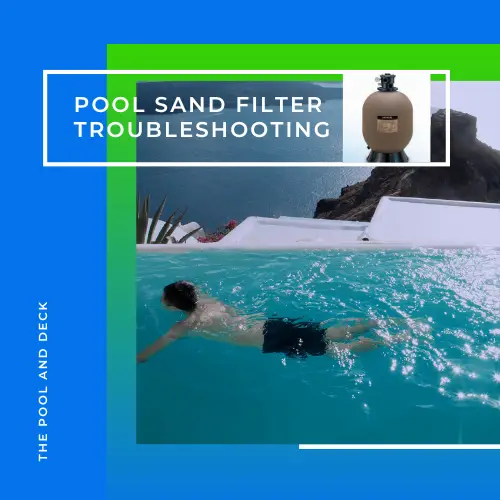Best Homemade Phosphate Remover for Pools (The Truth!)
As an Amazon Associate, I earn from qualifying purchases.
One way or the other phosphates will get into your swimming pool. So is there any homemade phosphate remover for pools? And does it even work?
As a pool owner, sooner or later you will be confronted by phosphates, a chemical in you pool that does not get too much attention. You may even ask, what are phosphates in pool water, anyway?
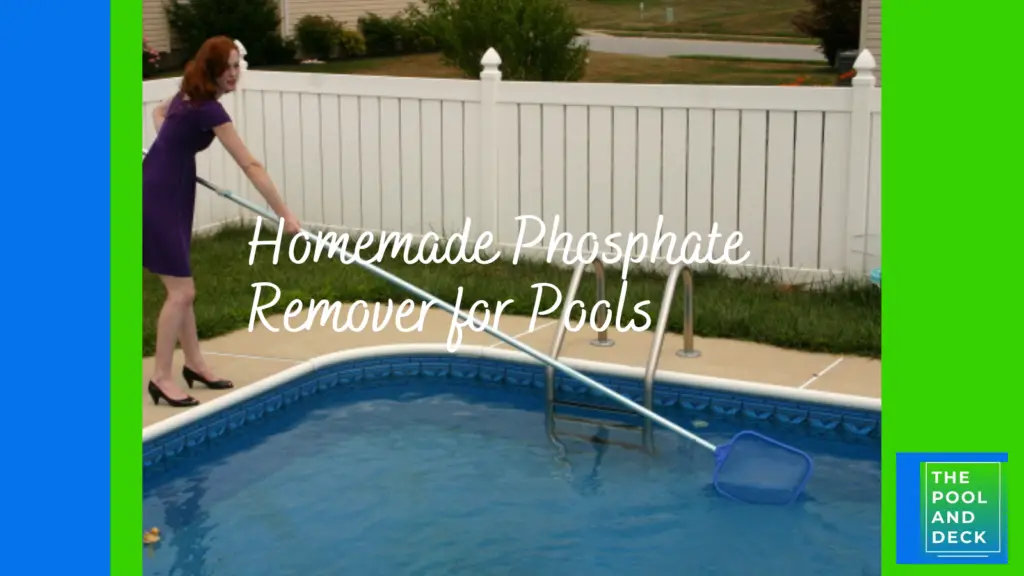
Table of Contents
Why do You Need to Worry About Phosphates in Your Pool?
Phosphates are compounds of the element phosphorous, found in various sources like fertilizers, dry leaves, and organic waste. They often find their way into pool water. The only problem with phosphates is that they are nutrients for algae.
To keep your pool crystal clear, you need to keep the phosphate levels in your pool as low as possible. High phosphate levels are more like to encourage algae growth in your pool and turn it into a murky green mess.
High phosphate levels may also increase chlorine demand. While phosphates do not react with chlorine they feed algae and as a result more chlorine is required to neutralize them.
In this article, I will go into the details of how you can keep phosphate levels in your pool in check. I will especially deal with the issue of homemade phosphate remover for pools, answering related questions and giving you practical & useful advice.
How Do Phosphates Enter Pool Water?
As already mentioned, phosphates are present in fertilizers, rotting leaves, and organic debris. In short the phosphate source is all around an outdoor residential pool.
Some common sources for phosphates in your pool water include:
- Fertilizers and Lawn Runoff: Phosphates present in fertilizers used on lawns and gardens can easily find their way into your pool due to lawn runoff.
- Rain or irrigation can wash these phosphates into the pool, especially if the pool is close to landscaped areas.
- Organic Debris: Leaves, grass, and other organic debris get constantly blown into the pool. The phosphates within them, ultimately leeches out into the water.
- Rainwater: Rain can introduce phosphates into the pool, particularly if it washes over surfaces treated with fertilizers or carries debris into the pool.
- Tap Water: Some municipal water sources contain phosphates. When refilling the pool, tap water with phosphates can contribute to the overall phosphate levels.
Is Homemade Phosphate Remover for Pools Effective?
Before you go ahead and start using a homemade phosphate remover for pools, you need to know if they even work?
The fact is that homemade phosphate remover for pools, like vinegar or baking soda, are very cheap but their effectiveness is questionable.
Homemade Phosphate Remover for Pools: Pros
- Really cheap
- Easily accessible
- Simple to apply
Homemade Phosphate Remover for Pools: Cons
- Not very effective
Commercial Alternatives to Homemade Phosphate Remover for Pools
You could save yourself the trouble of making homemade phosphate remover for pools by buying a commercial product such as Natural Chemistry Pool Perfect + Phosfree
Natural Chemistry Pool Perfect + Phosfree
Natural Chemistry Pool Perfect + Phosfree
- Add weekly to maintain near zero phosphate levels
- Cleans waterline and filer
- SMARTZyme technology reduces frequency of filter cleaning and scrubbing scum lines
Note of Caution: Many commercial phosphate removers use lanthanum as their active ingredient. Lanthanum is categorized as “moderately toxic,” and harmful to the environment, particularly marine life.
Another drawback of using commercial phosphate removers is that they negate the effects of metal sequestrants.
Metal sequestrants, particularly phosphate-based variants, effectively bind with copper or iron, preventing oxidation and rusting. The concurrent use of phosphate removers and phosphate-based sequestrants is counter productive and a sheer waste of money.
Do you Really Need Homemade Phosphate Remover for Pools?
An important question to consider is whether you really need a commercial or homemade phosphate remover for pools?
Yes, phosphates are nutrients and will encourage algae growth. But you have already got chlorine and algaecides that are working to keep your pool algae free. So do you need a third chemical as well?
In my opinion, you do not need a phosphate remover in most pools. A commercial or homemade phosphate remover for pools should be used only if the phosphate levels in the pool water or the source water are pretty high.
Prevention is Better Than Cure
The easier way to tackle high phosphate levels in your pool is to prevent its entry to the extent possible. Here are effective ways:
- Be Mindful of Fertilizers: Avoid using phosphate-containing fertilizers near the pool area.
- Regular Pool Cleaning: Remove leaves, grass clippings, and other organic debris promptly. Regular skimming and cleaning prevent these materials from decomposing and releasing phosphates.
- Choose Phosphate-Free Cleaning Products: When cleaning pool decks or surrounding areas, select cleaning products that are phosphate-free to avoid introducing phosphates into the pool water.
- Mindful Landscaping: Position landscaping elements strategically, for example, avoid plants or trees that shed leaves excessively close to the pool.
- Use Phosphate-Free Pool Chemicals: Check product labels to ensure they do not contribute to phosphate buildup.
- Install a Pool Cover: Using a pool cover when the pool is not in use prevents debris from entering and decomposing in the water.
- Install Pool Enclosure: Mesh or glass pool enclosure will not only make your pool child & pet safe, it will also prevent dry leaves and lawn debris from getting into the pool.
Thank you very much for reading the post. I do hope you found it informative and helpful.


